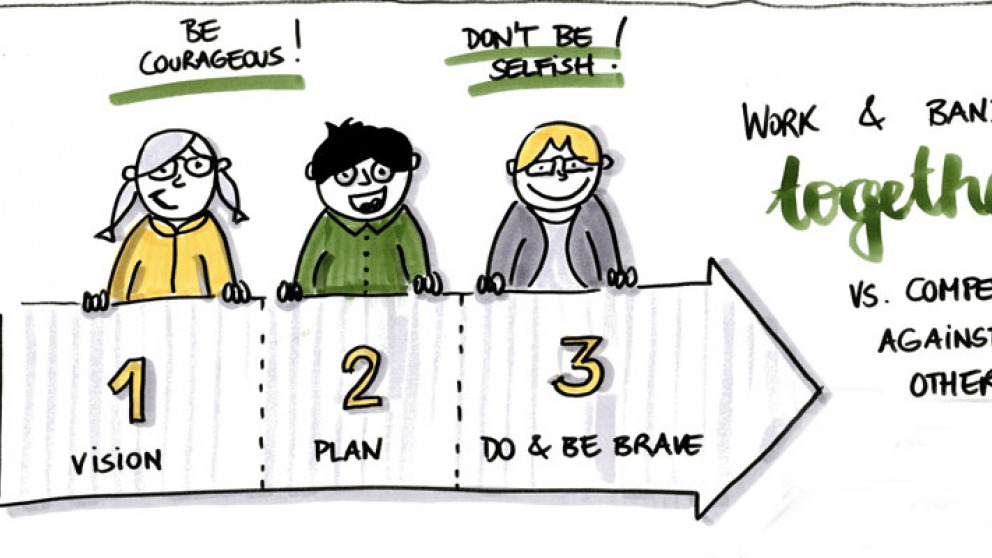“An enriching session”: Potsdam Summer School Participants and Local Students Discuss Climate Change
27.09.2016

“Be unique, make a change” was one of the take-home messages from Potsdam secondary school students, who, together with young professionals attending the Potsdam Summer School, worked on the interpretation of a metaphor story about a giant frog originating from the culture of Australian Aborigines. Storytelling, lively discussions, and great views of Potsdam at sunset have been part of an event organized by the IASS in the framework of the 2016 Potsdam Summer School at the Bildungsforum Potsdam. Dealing with climate change will require the engagement of many young people. Their voices need to be heard, as we face the vast upcoming challenges.
Aware of this, organizers of the 2016 Potsdam Summer School brought the participants of the school, young professionals from 24 countries, and students from two local secondary schools together to exchange opinions about climate change.
“It was an enriching and informative session. We enjoyed having the opportunity to share our perspectives, and discuss our personal experiences of climate change,” highlighted Roh Pin Lee from Singapore.
“Many of us were quite impressed with how much the young generation knows about climate change impacts and adaptation, and how they engaged on the subject,” added Lila Collet from France.
Rather than talk about climate change through a series of powerpoint presentations, stories were instead told. “Both stories were very personal ones, and at the same time universal,” said Lila Collet.
The first was Australian Chris Hedemann’s interpretation of “Tiddalik the Frog”, a Dreamtime story from Australian Aborigines.
“I wanted to impart the indigenous concept of ‘caring for country’. The story played on the themes of injustice and collective action. I was delighted by the creative and unexpected responses, which recognised the fresh perspectives that ancient stories can bring to the challenge of addressing climate change”.
The second story celebrated the collaboration of the Boston university students, who worked together, as part of a larger movement, calling for the city to cut its emissions by 80% by 2050, and 20% by 2020.
“My main message was there are environmentally concerned citizens everywhere, but only together can we make a social movement, and a difference. All the little movements add up, and you should never feel alone in the world,” explained Jessie Pearl, the second storyteller, from United States.
Attendees dived deeper into these stories when divided into smaller groups. Together the two groups reflected on how these stories related to their own experiences. “It was interesting to see how different groups perceived and evaluated the impacts which are associated with climate change,” noted Roh Pin Lee.
To close the evening, groups explored Potsdam’s relationship to climate change. Mahmudur Rahman Khan, from Bangladesh, remembers that: “As a positive example, students shared that Potsdam has started to run trams using solar energy. However, they also emphasized that the warmer winters, in last few years, have forced local authorities to think more about the infrastructure.”
He continued: “The students are proud to have many science research institutions in the city, but they feel lack of proper involvement with the science community.” This event, a first, acts as a great first step forward in involving more of the Potsdam community with the local scientific institutions.
